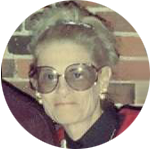James P. Kilroy, 91, of Weymouth, Mass., and formerly of Dorchester, Mass., died Oct. 7.
He was a pressman at the Boston Herald for 50 years.
Kilroy leaves his wife, Lillian; two sons, James and Stephen; two daughters, Ellen and Lorraine; seven grandchildren; eight great-grandchildren.
The obituaries were written, at least in part, from published reports by Bulletin correspondents Ashleane Alabre, Sophie Cannon, Jenna Ciccotelli, Nico Hall, Joshua Leaston, Georgeanne Oliver, Julia Preszler and Thomas Ward, undergraduate students at Northeastern University.




